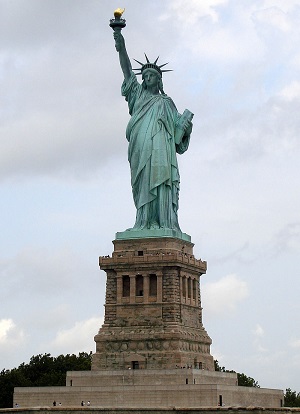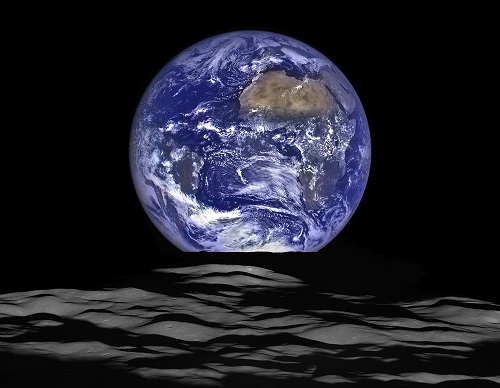A poll earlier this year found that one-third of Americans feel more anxious than they did a year ago. And that two-thirds of Americans are anxious about at least one aspect of their lives (e.g. “keeping myself or my family safe,” “paying my bills,” my health, my relationships, politics). That is not surprising. The climate—economic, political, and ecological—is getting more challenging and more uncertain, and that is making people anxious, whether they fully understand the longer-term implications or not.
But is that enough to explain our growing distress?
No, our growing anxiety stems from a combination of deeper issues. First, our environment is toxic. Not just the media, or even all the chemicals we slather on our bodies, but what we put into our bodies. The wrong foods—high sugar, high salt, high fat, plus far too much caffeine and alcohol—combine to make us overweight and ill in the long-term and daily bring us many frenetic peaks and dark valleys. In ancient times, humans only found the sugar equivalent of a glass of apple juice if they ate a half dozen apples, which took energy and time to travel, forage, chew, and digest all that sugar, so they never got the intense energy rush we do when we down a can of soda or cup of juice. Other than finding a beehive and greedily eating all the honey (and few would have done that—they would’ve shared it with their family and community), there were few times when we’d get the kind of mood-altering effects from our diet that we now get multiple times a day.

Raise your hand…if you have Purpose.
|
Add to that the mood-swingification that comes with the “smart” phone and social media revolution—where people pay far too much attention, not just to frightening or angering news stories, but the exciting things their “friends” are up to. Or even if they’re not doing something exciting, there’s the feeling that I should get in touch with this person, post this update, or watch this new series. There is now an infinite digital To-Do list to go with your real-world To Do list. The modern world is anxiety-producing—in many ways intentionally so. Advertisers figured out decades ago that if you create anxiety and offer a solution to that anxiety, people will readily buy it. (For those old enough, the classic example of this is for Sure Deodorant: “Raise your hand if you’re Sure”).
The growing field of Forest Medicine research also suggests a lack of nature time is heightening this anxiety, as is the awareness (or the suppression of this awareness) of the growing ecological changes that will eventually disrupt our ways of life. Even when we do accept that climate change “changes everything,” few of us actually change our behavior in a significant way, which causes further anxiety (along the lines of, I should do more, but why should I make the sacrifices when no one else is or how will society treat me if I make these changes?). In one recent essay on “Eco-Anxiety,” the author wrote, “I recognize the severity of the issue. I just don’t know how to deal with my feelings about the changing climate while living an ordinary life within it.” Ultimately, that’s the issue. We’re trying to still live ordinary lives, “dutifully separating our recycling—while hoping for large-scale political and corporate action.” But that’s not the right tack—and we know it—which causes further anxiety.
We, who understand what’s being done—and what’s coming—have to embrace this knowledge and live differently. Many of these changes are not painful. A healthy diet (of real food, not too much, and mostly plants—to quote Michael Pollan) frees you up to live a more joyful, more energetic life. Time in natural areas (even just a small park down the street) will improve your mood, while also taking you away from the anxiety-cultivating TV or phone (if you leave it off in the park), and grow your connection to Gaia. Getting involved in a bigger movement or local efforts will channel some of your energy, strengthen your community, and dispel some of the learned helplessness that we are burdened with (and which further adds to our anxiety and depression).
All of this brings me to the one element that is rarely talked about in articles on anxiety (whether generic or even eco-anxiety focused). And that’s purpose.
On Purpose
Having purpose has been shown time and again to be central to one’s subjective well-being. And having purpose even combats anxiety and depression.
But the consumer era has failed in establishing purpose. As more individuals have moved away from the ready-answer to the question of ‘what is our purpose?’ provided by organized religions (whether that’s get into heaven or get out of the karmic cycle), the default purpose we’re provided is to consume as much as we can: surf Amazon, buy into the latest trend, travel to exotic locales, download the latest app, and keep up with celebrity news, games, sports, or shows. But that is not our purpose—just an opportunity for some people to make more money off of our diminishing well-being. We have a very real and important purpose staring us collectively in our faces.
To commemorate the 50th anniversary of the Apollo moon landing, Lori Garver of The Earthrise Alliance wrote an op-ed in the Washington Post encouraging NASA to take on a new mission: to save Earth, rather than figure out how to get people to Mars (which obviously isn’t very important if we destroy Earth in the meantime*).
I would argue that that should not just be NASA’s new purpose, but all of ours. Collectively, we must embrace our purpose—which is not to buy stuff, make money, create beautiful art, become an actor, doctor, professor, or anything else. Our purpose is to heal all the damage we’ve done to the planet over the past centuries and help communities make it through the challenging times ahead (in a way that stops further damage). We can do all of those others things as well—and maybe by acting or making art or being a good doctor you can have a real contribution to healing the planet and preparing people, but whatever you do ultimately should be in service to Earth.
Being present in the now, connecting with nature, knowing you’re doing all you can to heal Gaia and prepare yourself and your community for the transition that is coming, and avoiding the bits of modernity that foment anxiety: all of that will help reorient you, dulling the anxiety and helplessness you feel, strengthening your sense of self and purpose and hopefully helping you to stay committed to using your life energy to heal the planet that you are part of and utterly depend on.
—
If you are feeling anxious and want to talk about it, email me at info@gaianism.org. We can set up a time to chat. If your anxiety is at a level where you are considering self-harm, call The Good Samaritan Help Line at: (877) 870-4673. Trained volunteers are available to help you 24 hours a day.
—
*Never will humans live on other planets in any significant numbers. We are part of this planetary organism and adapted for it, not lifeless planets or multi-decadal trips in space. We need to get beyond the fantasy that if we destroy Earth there’s a backup planet just around the bend.

Our purpose is staring us in the face.
|
ABOUT THE AUTHOR
Erik Assadourian has been a Senior Fellow at the Worldwatch Institute for 15 years and the Director of the Institute’s Transforming Cultures project since its creation in 2009 with production and publication of State of the World 2010: Transforming Cultures: From Consumerism to Sustainability. Erik is co-author of over a dozen books and an eco-educational board game, Catan: Oil Springs. He is a leading expert in sustainable development, economic degrowth, sustainable communities, consumerism, and cultural change. In his free time, Erik yardfarms and forages edibles where he lives. Erik recently obtained a certification on Sustainable Urban Agriculture from the University of District of Columbia. He is currently writing a book on Gaianism.
|